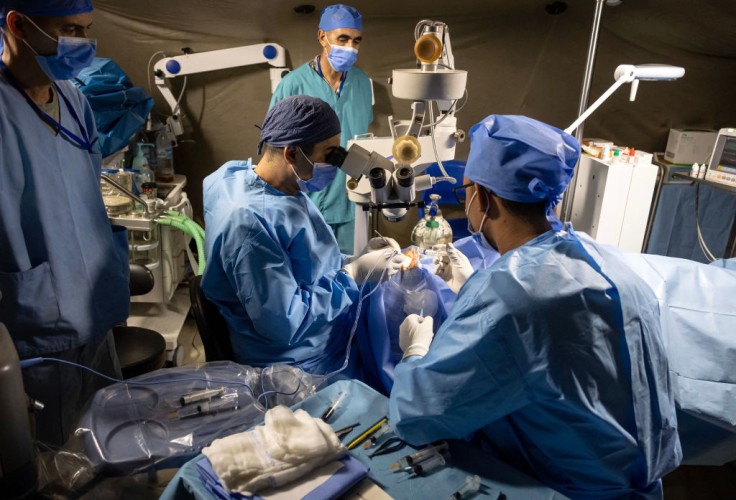
A woman who underwent transplant surgery to get a pig kidney and an implanted heart device has died, her surgeon declared on Tuesday.
New Jersey Woman Undergoes Dual Surgeries for Organ Failure in April
Lisa Pisano was in critical condition due to kidney and heart failure when surgeons at NYU Langone Health performed the dual surgeries in April. Initially, the New Jersey woman appeared to be recovering, but around 47 days later, doctors had to remove the pig kidney and place her back on dialysis after it was damaged by her heart medications.
Despite the dialysis and the implanted heart pump, Pisano was moved to hospice care and passed away on Sunday, according to NYU Langone transplant surgeon Dr. Robert Montgomery.
Dr. Montgomery applauded Pisano's boldness in undergoing exploratory xenotransplantation, which desires to address the intense shortage of transplantable organs.
Montgomery stated that Lisa brought us closer to a future where one person's life doesn't have to be sacrificed for another's survival, and she will always be remembered for her bravery and kind spirit.
In April, Lisa Pisano, aged 54, acknowledged that the pig kidney might not function, but she chose to proceed, explaining that she took a gamble, noting that if it didn't benefit her, it might have helped someone else.
Pisano was the second recipient of a kidney from a genetically modified pig.
The first, Richard "Rick" Slayman, underwent his transplant at Massachusetts General Hospital and passed away in early May, nearly two months afterward. His doctor declared that prior heart disease, not the transplant, caused his death.
Read Also : First Person to Receive Kidney Transplant from Genetically Modified Pig Dies 2 Months After Surgery
Biotech Companies Modify Pig Organs to Address Transplant Shortage
Over 100,000 people in the U.S. are waiting for transplants, with the most needing kidneys, and thousands die while awaiting surgery. Various biotech companies are working to genetically modify pigs so their organs are more suitable for human bodies and less likely to be denied by the immune system.
Despite these outcomes, the lessons learned from these attempts, along with research on donated bodies, have given doctors hope to start formal clinical trials next year with patients who aren't as critically ill.
In March, doctors at Massachusetts General Hospital in Boston performed a pig kidney transplant on Rick Slayman, aged 62. He died in May, with the hospital stating his death was not related to the transplant.
Dr. Montgomery highlighted Pisano's bravery in trying the genetically modified pig kidney, which gives hope to those awaiting transplants about the possibility of an alternative organ supply. He expressed that Lisa contributed to advancing a future where no one needs to perish so another can survive.
Historically, animal-to-human transplants have not been compatible, Montgomery explained in 2021. He explained that when transplanting across species, humans have pre-existing antibodies in their bloodstream, causing immediate rejection of pig organs transplanted into humans.
NYU Langone explained in April that the pig kidney given to Pisano had been genetically modified to disable the gene that produces a sugar called alpha-gal. Studies have shown that removing alpha-gal can prevent the immediate rejection of the transplanted organ.
Earlier this year, Montgomery emphasized that employing pigs with a single genetic alteration allows for a deeper comprehension of how a fundamental genetic change in the genome can support xenotransplantation as a feasible alternative.
He highlighted that these pigs can be bred and do not necessitate cloning, contrasting with more intricate genetic modifications, thus presenting a sustainable and expandable solution to the organ shortage.
Montgomery advocated for fewer modifications and medications as the pathway to swiftly saving more lives.
Related Article : Second Recipient of Genetically Modified Pig Kidney Returns to Dialysis After Organ Begins to Fail